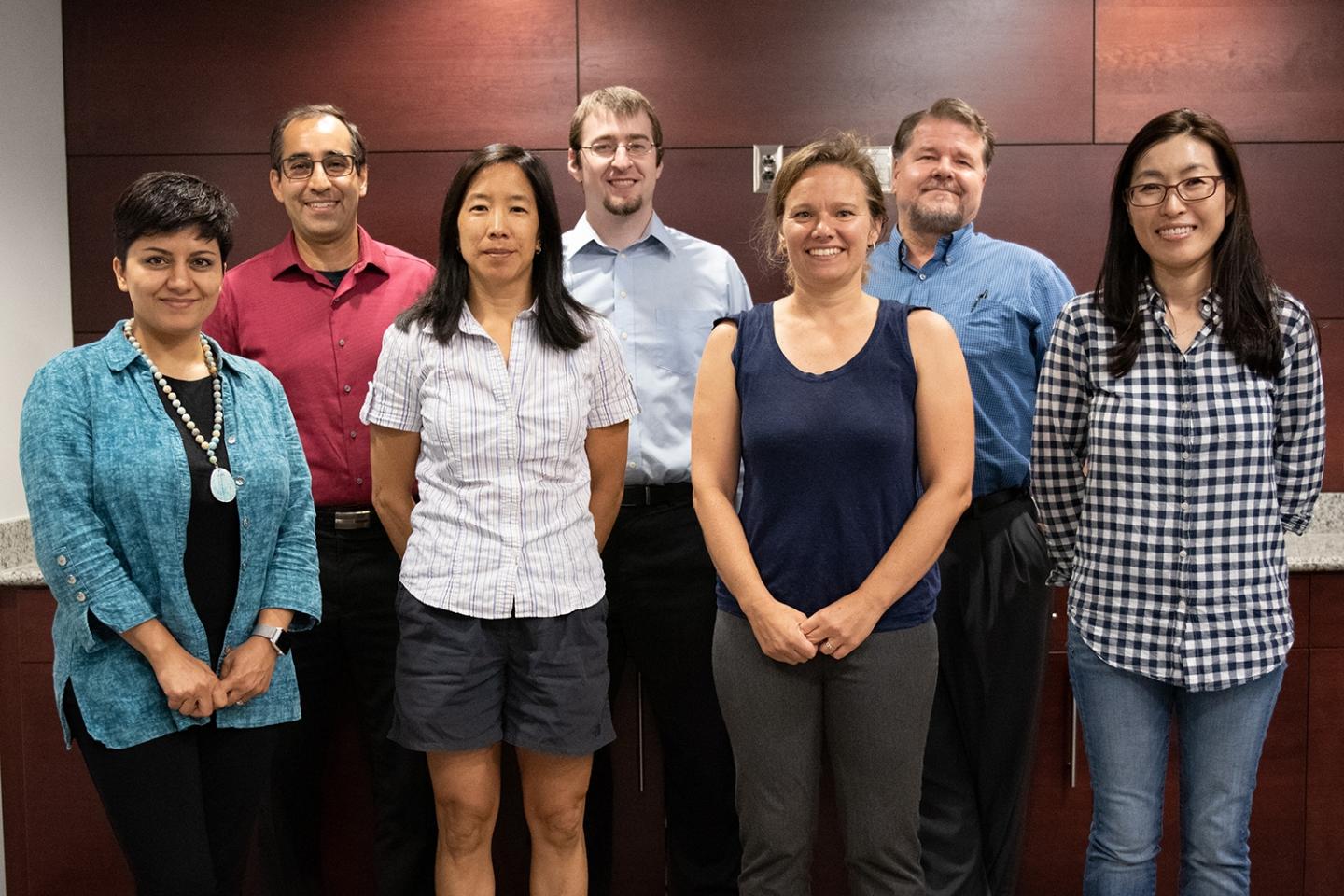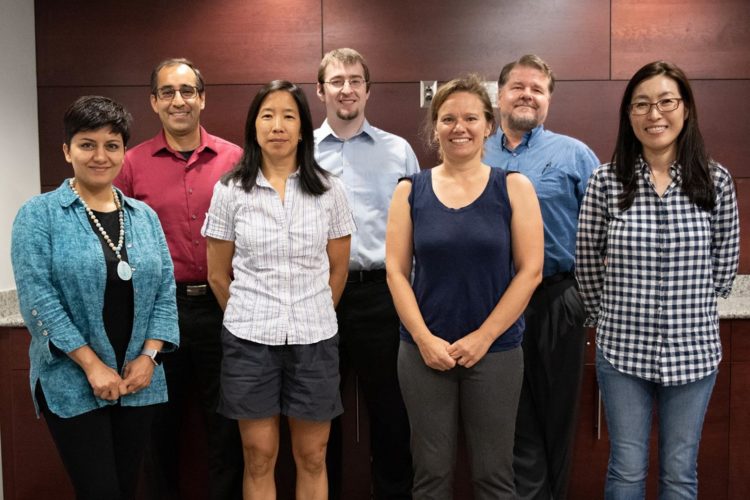
Credit: Greg Atkins for Virginia Tech
Hazardous air pollutants like benzene found in gasoline have been linked to cancer, asthma, autism, reduced fertility, and lower intelligence in humans.
With a $2.3 million award from the National Institute for Occupational Safety and Health, an interdisciplinary team of Virginia Tech researchers led by Masoud Agah, the Virginia Microelectronics Consortium Professor in the Bradley Department of Electrical and Computer Engineering, is working to revolutionize a testing process for these harmful pollutants, in particular for truck drivers.
According to Agah, a renowned researcher in chip-scale gas chromatography and Office of the Vice President for Research and Innovation Faculty Fellow, the development of effective strategies for reducing occupational exposure to pollutants requires accurate, time-resolved measurement of exposure.
Current practice typically requires collection of an air sample using specialized equipment, transport of the sample to the lab, and time-consuming analysis using expensive equipment to identify and quantify the pollutants present in the environment. The results are not available for several days, and they only provide an average measure of a worker’s exposure.
“Truck drivers have a higher risk of lung cancer that is associated with exposure to diesel exhaust,” said Linsey Marr, the Charles P. Lunsford Professor in the Via Department of Civil and Environmental Engineering and a co-investigator on this project. “Diesel exhaust is a complex mixture of particles and gases and the specific component responsible for health effects has not been identified. Some of the gaseous compounds are known or suspected carcinogens. We are focusing on measuring some of these compounds.”
The team will work to develop an intelligent wearable analyzer for vapor exposure, otherwise called iWAVE, that can be used to measure hazardous air pollutants in real-time in transportation-related and other workplaces.
The small, unobtrusive, wearable, direct-read device will provide a time resolution for exposure assessment in five short minutes and is expected to revolutionize the way drivers, mechanics, movers, loading dock workers, and similar occupations surrounding airplanes, trains, and ships combat harmful pollutants that they encounter on a daily basis.
“iWAVE will employ microelectromechanical systems technology, advanced microelectronics components and systems, and state-of-the-art micro gas chromatography and telecommunication techniques,” said Leyla Nazhandali, an associate professor in the Bradley Department of Electrical and Computer Engineering and co-investigator on this project. “The low-power, low-cost micro gas analyzer with its embedded system can replace cumbersome sampling methods that must be followed by costly analysis in a laboratory and is programmable through smartphone apps and can send alarms in case of high levels of exposures beyond the predefined set point.”
The team will evaluate the performance of iWAVE and compare it to that of conventional industrial hygiene sampling train and analytical methods during experiments in which participants perform two transportation work tasks at VTTI: heavy-truck refueling and fuel-injection mechanical maintenance.
Other co-investigators of this award include Andrew Miller, research associate at the Center for Truck and Bus Safety at the Virginia Tech Transportation Institute; Andrew Alden, executive director of the I-81 Coalition at Virginia Tech Transportation Institute; Julia Gohlke, associate professor of environmental health in the Virginia-Maryland College of Veterinary Medicine; and Inyoung Kim, associate professor of statistics in the College of Science.
###
Media Contact
Lindsay Haugh
[email protected]
540-231-2476
Original Source
https:/





